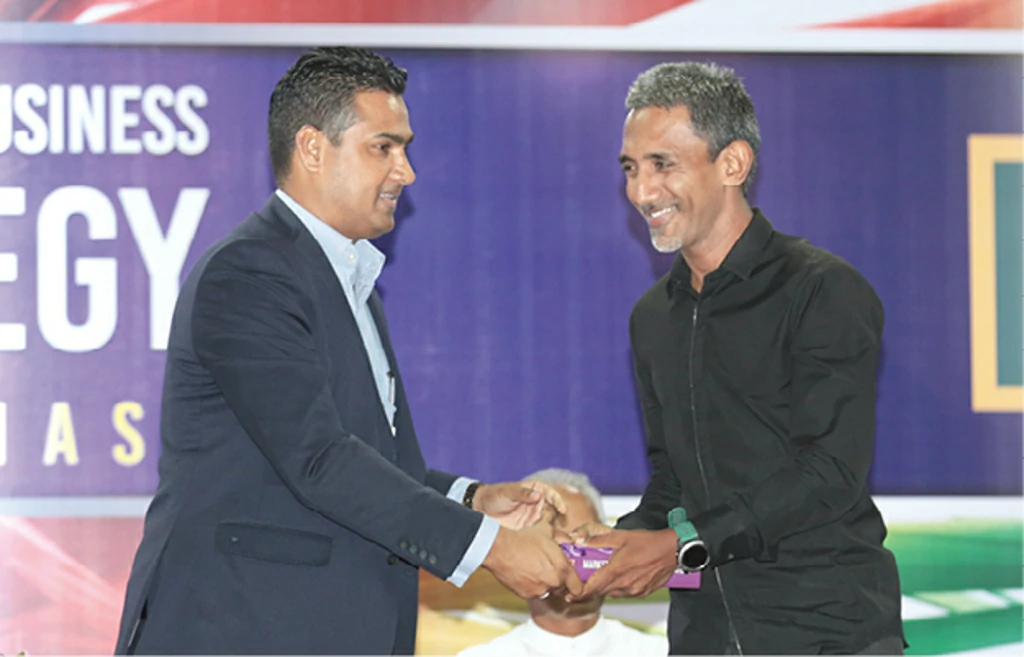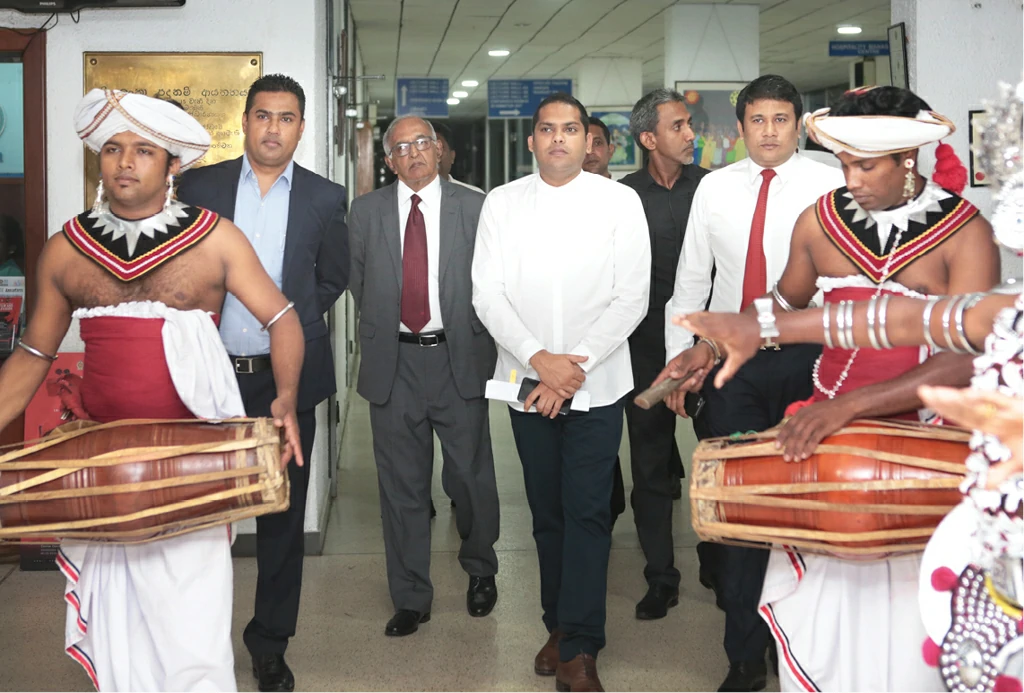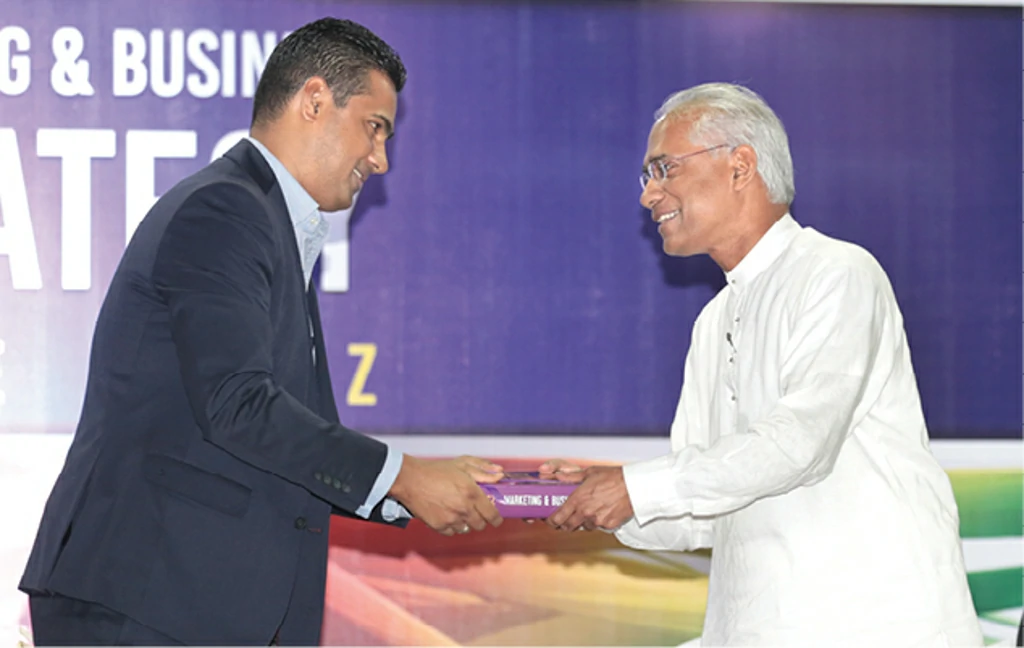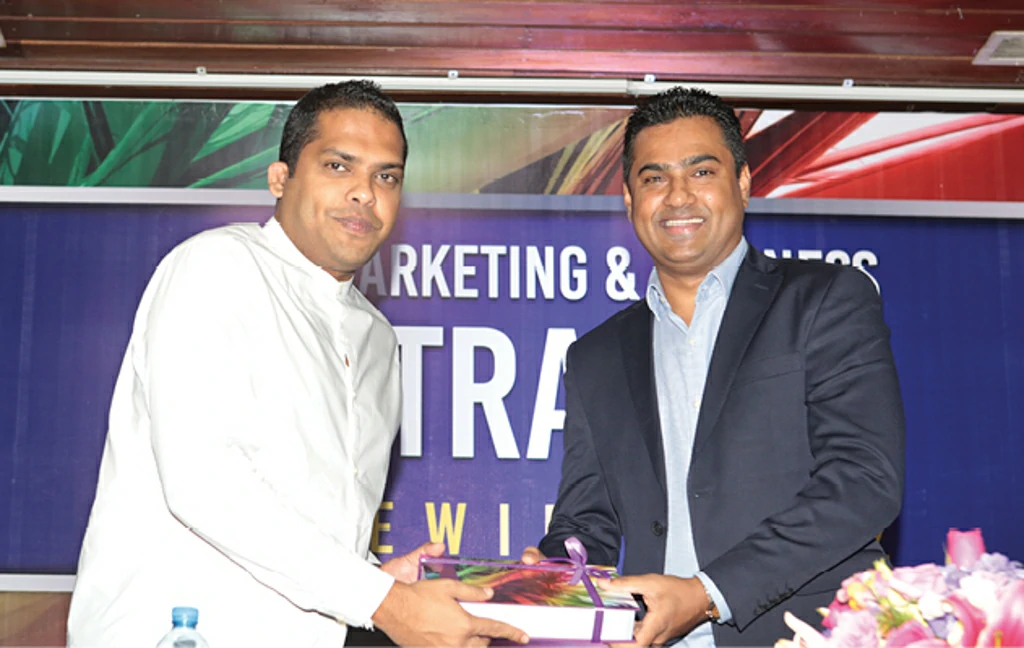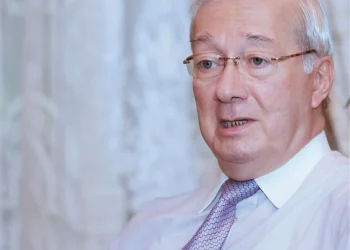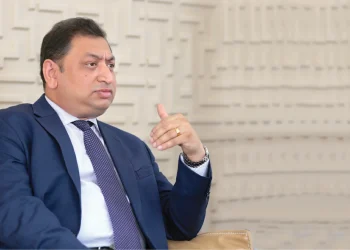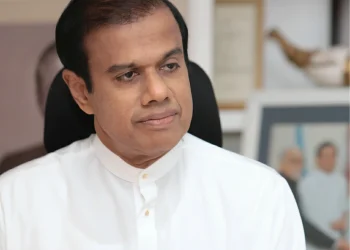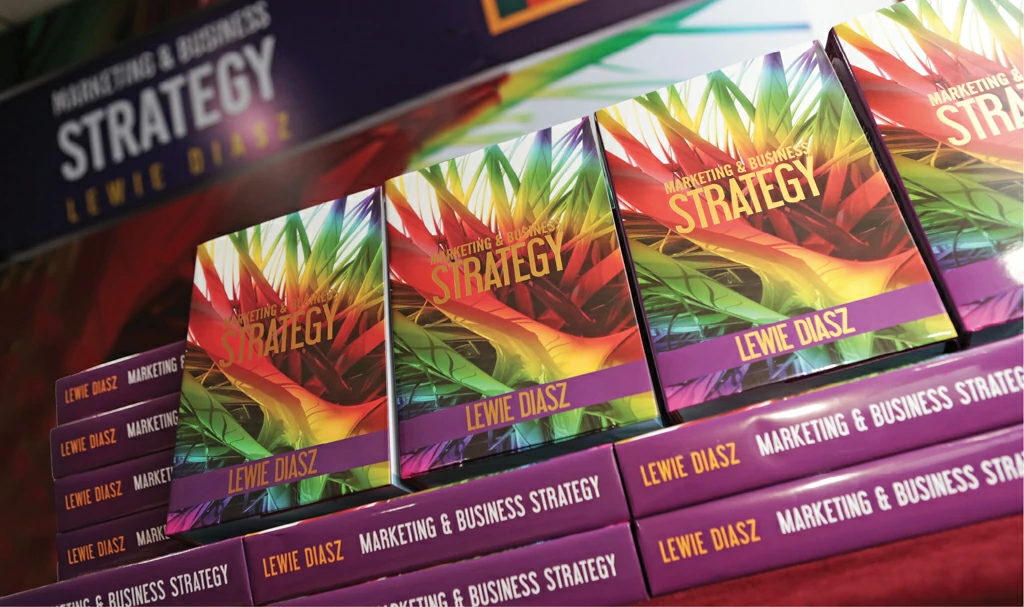
“Marketing and Business Strategy” by Lewie Diasz, was launched in Colombo. It is Sri Lanka’s first Management book to be published in the UK and USA.
By Keshini de Silva and Yomal Senerath-Yapa | Photography Menaka Aravinda
Chartered marketer and author Lewie Diasz launched his book, Marketing and Business Strategy in Colombo. The launch offered the audience a glimpse at very valuable insights on the subject matter of the book: strategy. The work, which has been recognised by international authors on strategy and marketing, was also acclaimed by speakers at the book launch due to the the value of the knowledge it disseminated. The Chief Guest at the event was Harin Fernando, Minister of Telecommunications and Digital Infrastructure while Eran Wickramaratne, State Minister of Finance, was the Guest of Honour. The keynote address was delivered by Eardley Perera, the ‘evangelist and god father of marketing in Sri Lanka’.
During the keynote, distinguished guests included, Eardley Perera, a Chartered Marketer with a wealth of experience, praised author Lewie Diasz for sharing knowledge. Speaking on strategy starting with an eloquent historical footnote where he explained that strategy first evolved essentially as a military practice.
“Consequently, marketing as a profession took advantage of strategy”, explained Eardley Perera. “I differ from the opinion that strategy is important only to marketing and business as strategy is a unit of leadership important for anything that involves people and activities.” He then noted the late Prime Minister Dudley Senanayake and President J R Jayewardene as politicians who used strategy with great results in the field of agriculture and by attracting foreign investment to the country respectively.
“We Need To Move Away From Looking At Fixing Problems In Terms Of Different Silos. We Should All Get Together, Eventually Fixing This System.”
Citing discourse on the country’s savings ratio and garbage disposal he said, “We have no specified, explained, declared strategy. We sort it (problems) out for the time being. But we should get out of this. Each of us must take responsibility. What the Government declares as the way forward, we must see whether it is viable for us, to implement it in our own home, own offices, so we can provide the Government with the necessary support.” Meanwhile, State Minister Eran Wickramaratne, drew distinction between quick fixes and what he called ‘fixing the system’. The State Minister said, “We need to move away from looking at fixing problems in terms of different silos. We should all get together, eventually fixing this system. I know if I put the problems before you, you will have the answers, that you will be able to actually come up with some solutions, that you will be able to come up with a strategy. Ultimately in politics you need the people to back your progressive ideas.”
Minister Harin Fernando, commending the author, said, “One thing he touched on is, pertaining to what is going on in the country and marketing, Big Data. Big data is important to strategise what you want to do in any industry. Innovation, R&Ds, what companies in Sri Lanka should focus on in terms of R&D.”
Yasas Hewage, Marketer and Entrepreneur said of the author, “I have never seen Lewie Diasz cancel a class; that is the focus. While talking about strategy and the importance of business you are showing the power of a passion and the power of focus.”
The book, to be released in the UK and USA received endorsements from global scholars and authors including Prof Gerry Johnson. It is dedicated to the late Professor Uditha Liyanage for his contribution to marketing strategy.
Why did you decide to write ‘Marketing and Business strategy’? Why did you select this topic?
Strategy has been very close to my heart ever since I started my career and in fact ever since I started studying. It is a subject that is so complex that not too many people know much about it, particularly within Sri Lanka. Although it is a term that originates from the military, in the business world it is often misunderstood.
Author And Chartered Marketer Lewie Diasz Emphasises That More Needs To Be Done In The Field Of Marketing In Sri Lanka And In Turn On How The Country Must Market Herself To The World.
There are 19 definitions of strategy by eminent and world leading scholars. They all see this word ‘strategy’ in different angles. I am adding the 20th definition to strategy, after going through an exhaustive literature review to understand how I see the subject. I think it is something that we all need to understand. As politicians, businesspersons and students we all need strategy. If you consider the US elections or Sri Lankan elections; whether you look at it personally or from a business angle, you must have strategy. That is why this topic fascinates me.
Could you tell us about the book ‘Marketing and Business Strategy’ and the process of compiling it?
In principle, I have touched on the topics of business strategy and also marketing strategy. I am a marketing evangelist and marketing is my discipline. Therefore, I approach strategy from the discipline of strategic marketing.
There are international scholars who have approached it from HR, finance, operations and IT. In terms of the two topics, marketing and business strategy, increasingly the area is becoming blurry. Therefore, marketing today is a philosophy. Marketing is for everyone in the organisation. Marketing and selling is not only relevant for the sales department or front line staff. Strategic marketing is relevant from the CEO to the entire organisation. Therefore, there are full time marketers, and everyone including your accountant and HR, production, operations and IT are part time marketers. It is like Buddhism; a philosophy for everyone. It is a set of rules for everyone in the organisation to follow: identify, anticipate, satisfy customer requirements profitably. Therefore, only one function of the organisation is not responsible for that, everyone can do it.
In Principle, I Have Touched On The Topics Of Business Strategy And Also Marketing Strategy. I Am A Marketing Evangelist And Marketing Is My Discipline.
My previous book was launched in 2013, by the title ‘Strategic Marketing – Marketing Strategies for Sri Lankan Business Entities, which took me three years to compile. The book that I launched this year, ‘Marketing and Business Strategy’ was compiled over a period of four years.
It is my intention to publish this book in the US and UK, which is why I have secured the endorsements of many world leading authors. For example, Prof Gerry Johnson is the author of the world’s number one seller on exploring corporate strategy in the world. Prof Johnson has reviewed my book and has encouraged me. Two other authors who have also endorsed the book are, Prof David Aaker and Prof Kevin Lane Keller who have co-authored with Prof Philip Kotler. They are the number one and two authors in terms of brand management in the world. The number one guru for digital marketing in the world Prof Dave Chaffey has also previewed my book.
I underwent a process of research and an extensive literature review, subsequently including my own thoughts and analysis after 16 years of teaching the subject. Therefore, I have now come to unlearn some of the things that I had learnt in the past. During the entire process of learning, yes you assimilate all the theories, but it also involves a certain level of unlearning. Because marketing is a dynamic subject, it is not a static subject. In fact, to be really honest, from the time you start writing a book till it hits the printing press, the market has changed. Therefore, you can never stop learning marketing and you will never finish learning. The subject is that dynamic.
For the new book, I have actually had the honour of interviewing some of the leading CEOs of this country. They are all market leaders. When I was studying marketing we used to analyse the case studies of companies such as Coca Cola, Ikea, Walmart, Virgin and at times Gilette. However, in Sri Lanka, we would not know some of the companies. Certainly, students who are studying marketing in the country have at times never experienced or seen what an Ikea is. These students have never encountered the Virgin brand because it has no presence in Sri Lanka. They do not know what Wallmart is, some would assume it is a supermarket, but it is more than that, it is a hypermarket. Hence, as students when you study the case studies of companies that you do not know, you tend to read them with only a theoretical mindset. However, when you read case studies of Sri Lankan companies and of market leaders such as Cargills, Commercial Bank, Odel, Cinnamon Grand and Dialog, you then apply the theories far better because you understand better. You are able to understand their mistakes in terms of your study.
Prof Johnson Has Reviewed My Book And Has Encouraged Me. Two Other Authors Who Have Endorsed The Book Are, Prof David Aaker And Prof Kevin Lane Keller Who Have Co-Authored With Prof Philip Kotler.
What are your thoughts on marketing and the perceptions of marketing in Sri Lanka?
I believe we have a long way to go in terms of companies fully embracing marketing. We are a small country with small budgets and do not have a lot of technology. We at times do not have the ability to fathom how marketing is conducted outside Sri Lanka. Therefore, if you place one of our marketers in the US, UK or India, they would fail miserably. This is because the tools they would use in other markets are completely different to those used in Sri Lanka.
For example, if you want to launch a product in Sri Lanka and reach three million people in one month, you would advertise in the best television and radio channels, the magazines and market via SMS or send bulk emails out to a large database. In the UK one cannot attempt such a campaign because the market is quite vast and the population and geographic spread is extensive and advertising on tv and radio is quite expensive. In the UK, mid-sized organisation cannot even consider commercial advertising. Therefore, marketing campaigns would be targeted and a lot of direct marketing or personal selling takes place.
Therefore, marketing today is all about virality (quality of being viral). Next generation marketing is all about exploiting digital media and it has emerged in Sri Lanka as well, just as it has across the world. It is a generational aspect of marketing. Therefore, at present the key to marketing is in understanding virality, understanding what makes your message viral. If you are able to do that you have won the battle.
What are your thoughts on the education sector in terms of marketing in Sri Lanka?
Marketing is something that is very close to my heart. I have been teaching for the past 16 years. More than teaching I have also been learning it for the past 16 years, as teaching is a process of learning. The endeavour is to produce high quality students. I have had the privilege of coaching three world prized students who have emerged as number one in the world for Case Study subjects in the final stage of CIM. They are ordinary students, but marketing is a life changing subject. Anyone can embrace this subject and anyone can be brilliant in it. You do not have to be the best in your school or the batch top to be brilliant in marketing. Therefore, I think there is a long way to go.
Marketing Is The Best Thing That Has Ever Happened To Me And It Has Been Life Changing. It Is A Subject Anyone Can Embrace.
There are a lot of opportunities to learn in marketing, but we in Sri Lanka need to bear in mind that we are frogs in a well. Just because you understand to market in Sri Lanka, that does not mean you understand exactly what is happening outside. It is completely different. The choices of magazines in Sri Lanka are few. However, overseas there is a vast number of magazines. Everyone distributes the magazines free of charge. Today, magazines have even stopped publishing in print and everything is digital or on apps. Today the young generation do not watch TV. I have a class of 185 students for stage one CIM, however only a few of them would have watched mainstream media over the week. Whatsapp, Instagram as well as Facebook newsfeed take up their time. The number one media for them is the newsfeed.
What is your message to those entering the field of marketing and also for emerging marketers?
Marketing is the best thing that has ever happened to me and it has been life changing. It is a subject anyone can embrace. Marketing is required in any discipline. Whether you are a doctor, pilot or engineer you need marketing. You need to sell and you need to convince.
Therefore, my vision is that we will also be able to market ourselves better as a country than what we are doing right now. I believe we have a good product. Our pricing is reasonable. We have all the ingredients for development, the infrastructure and logistics are in place, yet are we positioning ourselves properly? Are we marketing ourselves and the country properly? Perhaps there is a need for much improvement especially in terms of how Sri Lanka markets herself.
